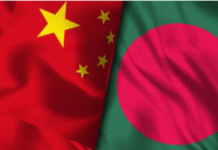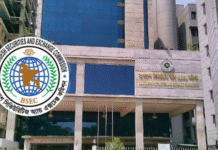
Economists and analysts have recommended reconsidering various tax benefits across different sectors and increasing reliance on direct taxes to raise Bangladesh’s tax-to-GDP ratio, one of the lowest in the world.
According to them, the current tax-to-GDP ratio in Bangladesh is around 8% or less. However, tax expenditures — the benefits provided through exemptions — account for about 6 to 6.5% of the GDP.
Emphasising the need to seriously reconsider this matter, they criticised that while policy decisions are usually made through parliamentary processes in many countries, in Bangladesh, tax exemptions are often granted through Statutory Regulatory Orders (SROs), benefiting certain groups or sectors rather than the general public.
The experts also suggested shifting away from reliance on indirect taxes like VAT and focusing more on taxing the wealthy and increasing income tax revenue.
These views were expressed during a panel discussion titled “Strengthening Fiscal Foundations: Enhancing Domestic Revenue Mobilisation for Sustainable Growth in Bangladesh” organised by the Economics Study Center of Dhaka University today.
Chaired by Dr Selim Raihan, professor, Department of Economics, DU, the panel included Dhruv Sharma, senior economist, World Bank; Sarmind Neelormi, professor, Department of Economics, Jahangirnagar University and Towfiqul Islam Khan, senior research fellow, Centre for Policy Dialogue (CPD).
The panel discussion was part of the opening day of the 6th Bangladesh Economic Summit (BES), a three-day event organised by the student-run Economics Study Center. The summit will conclude this Thursday and feature several panels covering different aspects of the economy.
Dhruv Sharma, who joined the discussion via Zoom from Colombo, addressed major challenges in revenue collection, compliance, and policy reform. He noted that Bangladesh’s tax-to-GDP ratio is significantly lower than other emerging markets. While many South Asian countries have a ratio of 18-19%, Bangladesh’s remains in the single digits.
Explaining this gap, Sharma said that around 70% of Bangladesh’s total tax revenue comes from indirect taxes, particularly VAT. Compared to other emerging economies, Bangladesh has an unusually high reliance on indirect taxes.
On tax compliance, Sharma highlighted that out of 10 million people with tax identification numbers, only 3 to 3.5 million actually pay taxes. Additionally, a third of income tax revenue comes from large taxpayers.
Citing Bangladesh’s heavy dependence on trade-related taxes, he called for a shift toward direct taxation — including income and corporate taxes.
Sharma pointed out some areas that need urgent attention to boost domestic revenue mobilisation: adopting modern tax policies and improving automation, reducing tax expenditures and addressing political economy constraints.
He also noted that tax exemptions, rebates, and holidays account for about 6.5% of the GDP, while total tax collection is just about 8% — a situation that needs urgent reform.
Dr Selim Raihan stated, “Bangladesh faces several economic challenges. The country has the lowest tax-to-GDP ratio in the world, around 8% or possibly even less. This limits the government’s capacity to spend on essential sectors like health and education.”
He added that there are several bottlenecks within the National Board of Revenue (NBR) and other government institutions. The government’s policy formation remains overly dependent on indirect taxation, and the various tax exemptions granted over the years should be reconsidered, he stressed.
Professor Sarmind Neelormi argued that many people are reluctant to pay taxes because they don’t receive the services they expect from the government. “NBR is giving more in tax exemptions than it is collecting. These exemptions through SROs are benefiting certain groups. It is now necessary to assess these benefits.”
Towfiqul Islam Khan stressed the importance of developing an integrated tax database and reassessing tax holiday policies. He pointed out that the agriculture sector has long enjoyed tax benefits. “If a farmer has a high income, why should they be exempt from tax?” he questioned.
He also noted that over the past 15 years, some policymakers have taken advantage of their positions for personal gain.
Due to the absence of an integrated database, even individuals in Dhaka who own 6-7 apartments are avoiding taxes. Although they could be identified through holding numbers, no action is taken. Over the years, SROs have been used to provide undue advantages to certain groups. “This cannot continue — it’s time to reassess these practices,” he said.
Before the panel discussion, the 6th Bangladesh Economics Summit was inaugurated by DU Vice-Chancellor Professor Dr Niaz Ahmed Khan at the Mozaffar Ahmed Chowdhury Auditorium.
The summit is organised with support from the Centre for Policy Dialogue (CPD), the International Labour Organization (ILO), and the International Growth Centre (IGC).
Pro-Vice Chancellor (Administration) Professor Dr Saima Haque Bidisha, Department Chair Professor Masuda Yasmin and Club Moderator Professor Dr Selim Raihan spoke as special guests at the opening ceremony, which was presided over by Hasibul Hasan, president of the Economics Study Center.

 Keep updated, follow The Business Standard’s Google news channel
Keep updated, follow The Business Standard’s Google news channel







